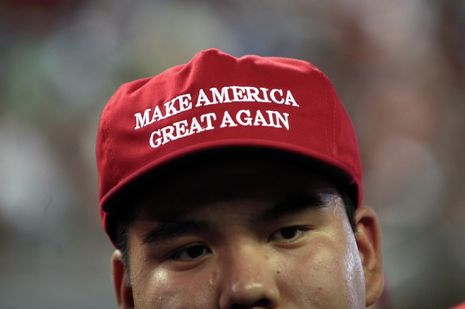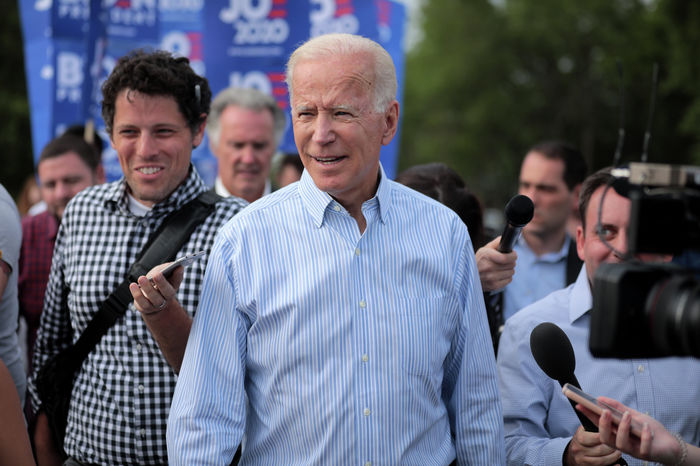Trumpism will likely remain alive and kicking in the Republican Party
Donald Trump’s loss in the 2020 presidential election will not end his influence within the GOP, predicts Christopher Symes.

For now, Donald Trump’s chances of winning a second Presidential term – pending the outcome of any legal challenge – look to be in tatters. The real-estate mogul turned reality television host turned leader of the free world has been defeated by the erstwhile right-hand-man of the target of racist ‘birther’ conspiracy theories hitherto disseminated by Trump himself. However, while Trump’s frontline political career may lie in a precarious state, the indications are that Trumpism – the nakedly populist ideology that fuelled his rise to the presidency – will remain embedded in the Republican Party, and thus in the American political landscape, for the foreseeable future. The importance of pitching typically Reaganite, fiscally conservative policies to the electorate has greatly diminished in the eyes of many Republicans, and it has been replaced largely by an unyielding focus on issues including immigration and culture, occasionally spilling over into unbridled racism, xenophobia, and all-round bigotry, in an attempt to win the votes of disillusioned, mainly white, voters through appealing to grievances about fears of being left behind by societal changes.
“...their populism is ultimately emblematic of a wider ideological shift within the GOP.”
To understand the full extent of Trump’s impact on the Republican Party, we must turn our attention to figures mooted as contenders for the GOP’s 2024 Presidential nomination. Consider Tom Cotton: a Harvard-educated lawyer, he may appear prima facie every bit the establishment Republican figure of yesteryear. Yet his recent actions reflect an undeniably populist approach. This was thrown into sharp relief by his polarising New York Times op-ed, in which he called for the deployment of military force to respond to nationwide protests over the killing of George Floyd, before responding to the resulting furore – which culminated in the resignation of James Bennet, the editor of the newspaper’s editorial page – by lambasting, in quintessentially Trumpian fashion, the piece’s critics as “a mob of woke kids”, while characterising the NYT’s typical output (in contrast to his own) as “left-wing, sophomoric drivel”.
Cotton has also thrown his weight behind the hard-line immigration stance permeating Trumpism. He was among the fervent advocates of the RAISE Act, an ultimately unsuccessful bill seeking to slash legal immigration numbers in half. More recently, Cotton has expressed scepticism over the ballot-counting procedures used over the last few days, embedding a link on his Twitter account warning that “the Democrats will try to steal this election”. It is difficult to escape the feeling that if the Republicans turn towards one of the rising stars of their party in their bid to win back the White House, this will not necessarily herald a pragmatic, moderate, non-populist approach, but instead, its antithesis.
“...even those who may not be instinctively populist have ultimately succumbed to the allure of Trumpism.”
Another Republican figure emblematic of the party’s growing embrace of populism is Josh Hawley. Like Cotton, he has sought to be at the forefront of efforts to cut immigration numbers; the newly-elected Hawley teamed up with Cotton in 2019 to reintroduce the RAISE Act before the Senate. In fact, by this time, such policies were to the right of even Trump’s stated views, with the President focusing his ire at this point on undocumented, rather than legal, migrants, even going so far as to call in his State of the Union address for the “largest numbers ever” of legal immigrants to enter the United States. Interestingly, Hawley has put particular emphasis on scrutiny of so-called ‘big tech’ firms, in line with a Trumpian ethos prioritising protectionism over small-state, laissez-faire policies. He achieved prominence late last year through his excoriating criticism of TikTok vis-à-vis privacy concerns surrounding the app (whose parent company, ByteDance, is headquartered in China), and has since taken Facebook to task for what he perceives to be censorship of stories unfavourable to Joe Biden’s son, Hunter. Regardless of whether Hawley or Cotton ultimately enter the presidential race, let alone win it, their populism is ultimately emblematic of a wider ideological shift within the GOP, pivoting away from what are viewed as increasingly out-of-date notions of conservatism by Republican base voters and policy-makers alike.
Cotton and Hawley are not, of course, the GOP’s only figures of note going forward; Nikki Haley also merits consideration. Her relationship with Trumpism is altogether more complex, imbued by an apparent reluctance to commit unequivocally to right-wing populist stances, as characterised by her references at party conventions to her family’s Indian Sikh background, and her praise of immigrants as “the fabric of America”. Nevertheless, it would be simplistic to view Haley as an unabashed anti-populist – she praised Trump for his widely derided ‘law and order’ speech in front of a boarded-up church during protests following George Floyd’s death, and, during her tenure as Trump’s ambassador to the UN, was renowned for her combative, pro-‘America First’ line, threatening to "take names" of countries that had provided the U.S. with insufficient backing.
Indeed, it is the positions taken by the likes of Haley – the supposedly ‘moderate’ Republicans – that are most telling of all: even those who may not be instinctively populist have ultimately succumbed to the allure of Trumpism. Even assuming that the likes of Vice-President Mike Pence, any of Trump’s children (of whom Donald Jr. has expressed an interest in running for president), or even Donald Sr. himself refrain from future presidential races, defeat at the ballot box may not necessarily mark Trumpism’s demise in the party once led by Abraham Lincoln and Theodore Roosevelt, but alternatively, the mere end of its beginning.
 News / Uni members slam ‘totalitarian’ recommendation to stop vet course 15 January 2026
News / Uni members slam ‘totalitarian’ recommendation to stop vet course 15 January 2026 Science / Why smart students keep failing to quit smoking15 January 2026
Science / Why smart students keep failing to quit smoking15 January 2026 Comment / Will the town and gown divide ever truly be resolved?12 January 2026
Comment / Will the town and gown divide ever truly be resolved?12 January 2026 Features / How sweet is the en-suite deal?13 January 2026
Features / How sweet is the en-suite deal?13 January 2026 Interviews / The Cambridge Cupid: what’s the secret to a great date?14 January 2026
Interviews / The Cambridge Cupid: what’s the secret to a great date?14 January 2026










